Annual Bring Them Home Mass 2024

Bring Them Home Mass and Committal
November 2nd, 2024 at 11:00am
The annual Bring Them Home Mass and Committal Service will be held at Mt. Olivet Catholic Cemetery chapel on November 2, 2023 (All Souls Day) at 11:00am.
Cremated remains must be registered by October 25, 2024 for the Mass and Committal Service.
Location:
Mount Olivet Catholic Cemetery Chapel
12801 W. 44th Ave │ Wheat Ridge, CO 80033
To learn more, visit our website: https://cfcscolorado.org/events/bring-them-home-mass/
What is the Bring Them Home Mass?
The Bring Them Home Mass and Committal Service is held on All Souls Day (November 2nd) and is an opportunity for those with the cremated remains of loved ones at their residence to bring them to Mount Olivet Catholic Cemetery and lay them to rest in a sacred burial space, at no cost.
Every person, being made in the image and likeness of God, deserves to be buried in a dignified and sacred burial space. In fact, the burial of the dead is one of the Corporal Acts of Mercy (Tobit 1:16-18).
“Following the most ancient Christian tradition, the Church insistently recommends that the bodies of the deceased be buried in cemeteries or other sacred places. […] By burying the bodies of the faithful, the Church confirms her faith in the resurrection of the body, and intends to show the great dignity of the human body as an integral part of the human person whose body forms part of their identity. […] Furthermore, burial in a cemetery or another sacred place adequately corresponds to the piety and respect owed to the bodies of the faithful departed who through Baptism have become temples of the Holy Spirit and in which “as instruments and vessels the Spirit has carried out so many good works.” (Congregation for the Doctrine of the Faith. Instruction “Ad resurgendum cum Christo,” October 25, 2016.)
As a ministry of the Archdiocese of Denver, Catholic Funeral & Cemetery Services (CFCS) of Colorado offers a unique program that allows, at no charge, the placement of cremated remains in our Crypt of All Souls. This service is available to anyone of any faith who has cremated remains that they want permanently interred within the consecrated grounds of the Mount Olivet Catholic Cemetery.
Crypt of All Souls
If you were not able to participate in the annual Bring Them Home Mass, our Crypt of All Souls ministry program has a committal service every month.
As a ministry of the Archdiocese of Denver, Catholic Funeral & Cemetery Services (CFCS) of Colorado offers a unique program that allows, at no charge, the placement of cremated remains in our Crypt of All Souls. This service is available to anyone of any faith who has cremated remains that they want permanently interred within the consecrated grounds of the Mount Olivet Catholic Cemetery.
Highlights of the Program
- Free placement in the Crypt of All Souls located in Ascension Mausoleum at Mt. Olivet Catholic Cemetery
- A committal service from the Order of Christian Funerals
- A permanent recordation of interment
- Open to all funeral homes
- Open to all faiths
Below are the future dates for the committal service and interment in the Crypt of All Souls:
- November 20, 2024
- December 18, 2024
- January 15, 2025
- February 19, 2025
- March 19, 2025
- April 16, 2025
- May 21, 2025
- June 18, 2025
- July 16, 2025
- August 20, 2025
- September 17, 2025
- October 15, 2025
- November 19, 2025
- December 17, 2025
To learn more, visit our website: https://cfcscolorado.org/mission-programs/crypt-of-all-souls/

